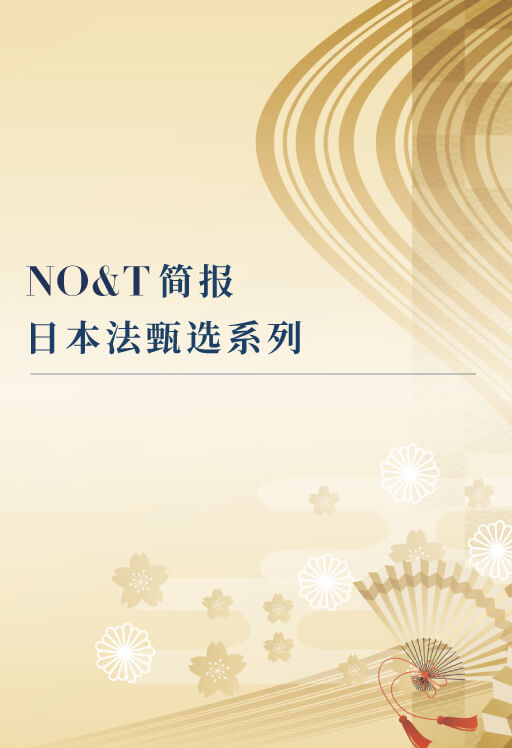
NO&T Japan Legal Update
英文
I. Introduction
Japan has been experiencing a boom in inbound tourism in recent years on the back of a number of various factors, including a depreciating of the Japanese yen, promotion of Japan’s historical attractions and a relaxing of visa requirements for tourists. It is also expected that the demand for accommodation in Tokyo will continue to rise significantly in the lead up to the 2020 Olympics. These circumstances have resulted in an increase in the number of hotels and accommodation facilities, but there still remains significant unsatisfied demand in the accommodation market. In order to meet this demand, private lodging services (in Japanese, minpaku) have been introduced by foreign service providers, such as Airbnb. However, in Japan under the Hotel Business Act, a hotel license is required to provide accommodation services for fee‐paying guests. Private lodging services (e.g., a room rented by one individual to another individual for a certain fee through the internet) could be within the scope of the Hotel Business Act and therefore require a hotel license. The legal position of private lodging services has been subject to debate over the last couple of years as it has increasingly attempted to fill the gap in the accommodation market.
In order to achieve a balance between relaxing the strict licensing requirements and maintaining robust regulations over the operation of private lodging services, the Private Lodging Business Act (Minpaku Law) was enacted on 9 June 2017 and came into effect on June 15, 2018.


松本岳人


北川贵广


Roku(鹿) Haseru、船越圣二、艾苏(共著)


Roku(鹿) Haseru、船越圣二、艾苏(共著)


北川贵广


Roku(鹿) Haseru、船越圣二、艾苏(共著)


Roku(鹿) Haseru、船越圣二、艾苏(共著)


Roku(鹿) Haseru、中野学行、艾苏(共著)